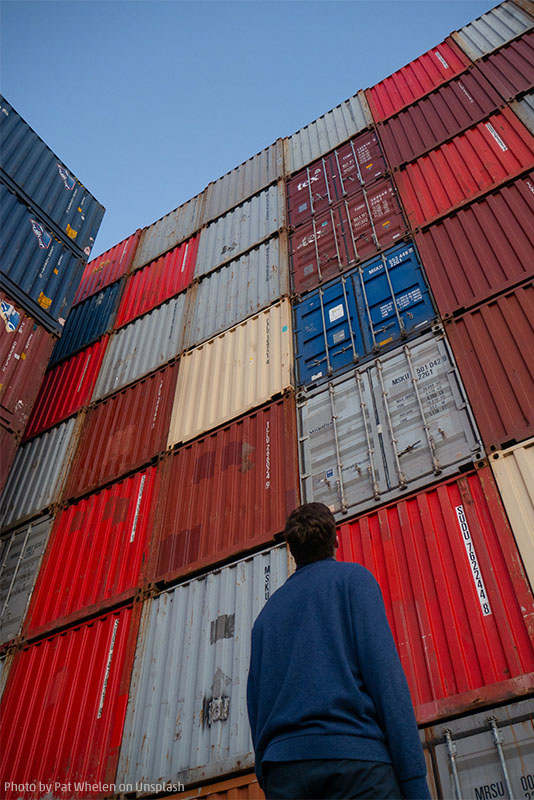
VAT Zero-Rating under CREATE
By: Atty. Mabel L. Buted
"The removal of VAT-zero-rating on local purchases of non-Export Enterprises is particularly crucial, especially for registered enterprises which are not entitled to other incentives other than the VAT zero-rating of purchases. Exclusion from the VAT zero-rating incentives will place them on equal footing with non-registered enterprises. Is there still advantage for them to register and locate in economic or freeport zones?"
Before the enactment of CREATE, all purchases of goods and services by enterprises registered with and located in economic and freeport zones were entitled to VAT zero-rating. Thus, no VAT were imposed by local suppliers on their sales to locators of economic and freeport zones, so long as the latter remain registered. The basis was the cross-border doctrine, where sales to these entities were treated as export sales.
The entitlement to VAT zero-rating was usually confirmed by the administrator of the economic zone through the issuance of a Certificate of VAT Zero-Rating. This certification is provided by the registered enterprise to its local suppliers, and this is used by the latter to support the VAT zero-rating of its sales. Also, the VAT zero-rating was made automatic, such that the suppliers were not required to apply for effective zero-rating.
This VAT incentive rule used to be straight-forward and the availment of both by the registered enterprise and its local suppliers used to be simple. Contrary to the intent of its enactment, CREATE and its implementing rules and regulations (IRR) made the implementation of VAT incentives complicated.
 CREATE limited the application of VAT zero-rating to purchases that are directly and exclusively used in the registered project or activity of the registered enterprise. With that, there is a need to determine and substantiate that the goods and services purchased are directly and exclusively used in the registered project or activity. That determination itself presents many challenges.
CREATE limited the application of VAT zero-rating to purchases that are directly and exclusively used in the registered project or activity of the registered enterprise. With that, there is a need to determine and substantiate that the goods and services purchased are directly and exclusively used in the registered project or activity. That determination itself presents many challenges.
The IRR also went further by providing parameters which are not provided in the law. While the law does not limit the registered enterprises that are entitled to VAT zero-rating on purchases, under the IRR, the VAT zero-rating incentive can be availed of only by registered export enterprises. The revenue issuances followed by specifically excluding Domestic Market Enterprises (DMEs or those that are not Export Enterprises) and Service Enterprises (e.g., customs brokerage, trucking services, forwarding services, janitorial services, security services, banking and other financial services, consumers’ cooperatives, credit unions, consultancy services, retail enterprises, and restaurants) from those that are entitled to the 0% VAT on their purchases. For these types of enterprises, VAT-registered local suppliers are supposed to pass on VAT even if the goods and services sold are directly and exclusively used in the buyer’s registered activities.
Another parameter introduced by the IRR is to limit the period of enjoyment of the VAT-zero rating incentive to specific number of years. This can be availed only up to a maximum period of 17 days from the date of registration. Apparently, while the income-related tax incentives (i.e., income tax holiday and the 5% special corporate income tax) is limited by this period, there is no similar period provided for the enjoyment of VAT incentives.
The removal of VAT-zero-rating on local purchases of non-Export Enterprises is particularly crucial, especially for registered enterprises which are not entitled to other incentives other than the VAT zero-rating of purchases. Exclusion from the VAT zero-rating incentives will place them on equal footing with non-registered enterprises. Is there still advantage for them to register and locate in economic or freeport zones?
Even the procedures required to be complied in the availment of VAT zero-rating is quite a challenge. The reimposition of the application for the VAT zero-rating poses a concern on the timing and regularity of the application. In fact, there is also a requirement that the application should be accompanied by a sworn declaration of the registered enterprise that the goods and services bought are directly and exclusively used for the production of goods and completion of services to be exported, together with the VAT-Zero Rating Certification issued to the buyer.
These are just among the questions and challenges surrounding the implementation of the VAT incentives as modified by CREATE. All these, and many other concerns, related to the entitlement to the VAT incentives by registered enterprises and the VAT treatment of sales by local suppliers should present compelling reasons for the review of the implementing rules and regulations and the related revenue issuances. Hoping that there will be modifications so that the reasons behind the enactment of the law will be realized. A review of the rules and procedures might be worth considering while these are relatively new.
The author is a junior partner of Du-Baladad and Associates Law Offices (BDB Law), a member-firm of WTS Global.
The article is for general information only and is not intended, nor should be construed as a substitute for tax, legal or financial advice on any specific matter. Applicability of this article to any actual or particular tax or legal issue should be supported therefore by a professional study or advice. If you have any comments or questions concerning the article, you may e-mail the author at This email address is being protected from spambots. You need JavaScript enabled to view it. or call 8403-2001 local 160.



